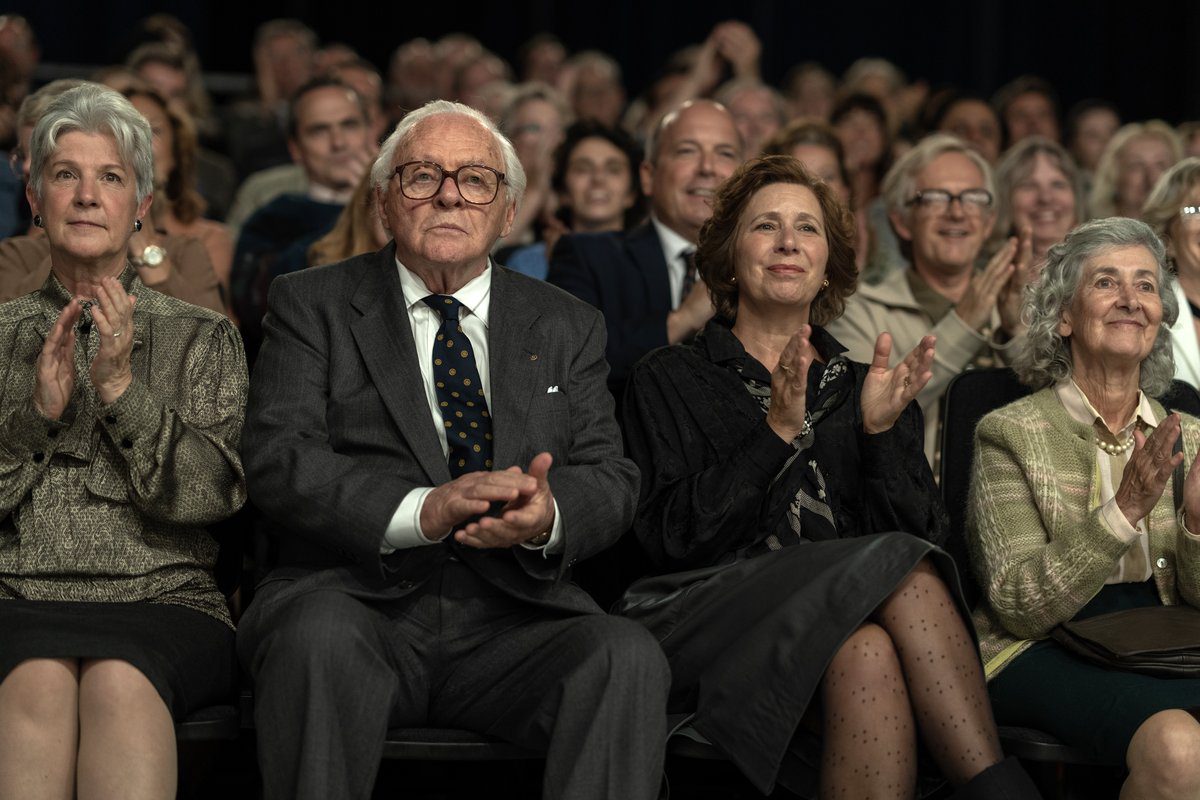His name will never be as widely recognized as it ought to be, but Nicholas Winton is one of the authentic heroes of the last century. Born in 1909 in Hampstead, London, Winton’s parents were Jewish, but he was brought up in the Church of England. He had achieved conventional, comfortable success as a stockbroker in London when, as the storm clouds of World War II were gathering, he felt compelled to intervene in an unfolding human catastrophe.
In 1938, Winton was drawn into service with the British Committee for Refugees from Czechoslovakia, whose mandate was to provide transport from Prague to Great Britain for refugees who had been driven from their home countries by the Nazis; a majority of the refugees were Jewish. Upon his arrival in Prague, Winton initiated the expansion of the organization’s mission to provide transport for the children of refugees, whose status was all the more precarious given the inevitability of Nazi occupation of Czechoslovakia.
In all, 669 children were saved thanks to the courageous intervention of Winton and his colleagues, the backing of the British government, and the pure and simple compassion of the British public—who stepped up financially and to make their own homes available to the children. The press has long written of Winton as being akin to the “British Schindler,” a reference to Oskar Schindler, the German industrialist whose heroic actions averted the deaths of more than 1,200 Jews in the Holocaust.
Of course, 31 years ago Steven Spielberg brought Schindler’s extraordinary story to widespread attention in one of the great works of modern cinema, Schindler’s List. This year, Winton (who died in 2015 at age 106) was himself made the leading figure in a feature film, One Life, which premiered earlier this spring in the U.S. and is currently available to stream. It stars Johnny Flynn as Winton during the time of his work in Prague, and Anthony Hopkins as the man decades later, in the late 1980s, when his deeds began to become better known, at least in Britain. As directed by journeyman television helmer James Hawes, One Life lacks the profound artistry of Spielberg’s masterpiece but serves a noble purpose nonetheless: clearly, elegantly, and unpretentiously, the film educates audiences on a life worth remembering, celebrating, and emulating. These days, how often can you say that a mainstream film, starring an actor as famous as Hopkins, seeks to edify rather than merely entertain?
The first hour of the film unfolds in flashbacks showing the stylish, well-heeled 29-year-old Winton encountering firsthand the deprivations of the refugees in Prague, especially the numerous children—some with families, some without. Despite the cold, gray gloom, some cannot manage to suppress their innocence; one girl walks behind Winton as he surveys a refugee camp, laughing and inducing him to break off portions of a chocolate bar he has with him—first to her, then to a multitude. Yet the situation is grave. “The children—we have to move them,” Winton says to Doreen Warriner (Romola Garai), an admirably matter-of-fact worker at the British Committee for Refugees from Czechoslovakia. “Says the man who arrived yesterday,” she retorts.
All the same, Winton, Warriner, and their colleagues essentially have no choice: confronted with the suffering and impending death of children, the proper response is to act. Back home, Winton calls upon his mother, Babette (Helena Bonham-Carter), from whom her son apparently acquired his pugnacious sense of purpose. Upon encountering a recalcitrant bureaucrat in the British immigration office, Babette says: “Young man, I have something to tell you. Sit down.” In movies, of course, such characters always follow orders, but one senses that the real-life Babette likely had this very same moral authority. (An interesting historical fact: Bonham-Carter’s maternal grandfather, Eduardo Propper de Callejon, was a Spanish diplomat who forged exit visas during the war to save thousands of Jews in occupied France from deportation to the death camps.)
Lushly photographed by Zac Nicholson and designed with an eye for period detail, there are pleasing montages of the flurry of paperwork Winton’s effort produces: letters typed, pictures glued, envelopes stuffed, checks received. Other passages of the film have something of the excruciating tension of Fred Zinnemann’s 1977 masterpiece Julia, starring Jane Fonda as a possibly fictionalized but nonetheless morally commanding version of Lillian Hellman, who consents to carrying money to support efforts against Hitler in Germany—an endeavor plagued with near-misses and almost-calamities in scenes as gripping as any thriller.
As the young Winton and his mother, Flynn and Bonham-Carter make for a sharp, steady mother-son duo—sure of their purpose, steadfast in their cause—but as the aged, 70-something Winton, Hopkins conveys an entirely different quality: his Winton seems preoccupied, distant, possessed by memories of the children he saved or attempted to save, whose pictures he retains in countless files that have swallowed his house and, especially, in a dedicated scrapbook. (An “X” over a child’s photo indicates that he or she has been placed in a British foster home; its absence indicates the opposite.) Winton says, at one point, that he tries to suppress his imagination for fear of what happened to the children he was not able to save. As he proved in James Ivory’s The Remains of the Day and countless other films, Hopkins can express crushing regret better than nearly any other modern screen star.
What does Winton have to regret? Of course, he regrets not shepherding more children to safety, especially those on one train in particular unable to make its journey to safety. This is hard for those of us who lead comfortable lives to comprehend, but if you see mass human suffering up close, how can you possibly judge when you’ve done enough to alleviate it? Is there even such a thing as doing enough? It is a credit to the screenplay by Lucinda Coxon and Nick Drake that the film prompts such questions in the viewer.
For its final half hour or so, One Life shifts to the late 1980s, when Winton is cajoled into appearing on episodes of the BBC program That’s Life!, a kind of newsmagazine-style show that aired from 1973 through 1994. There, in a surprise, Winton finds himself in the company of the now-grown children he helped save—first one such child, then an entire studio-full. Winton seems as bewildered as anyone by such a reunion taking place on live television, especially on a program as trivial as That’s Life! appears to have been, but he comprehends that the show is popular enough to virtually assure that their story will not be forgotten. (Why shouldn’t popular culture be marshaled for public good?) When Winton’s wife, Grete (Lena Olin, whose warmth and openness makes for a striking contrast to Hopkins’ natural reserve), sees her husband on television, embraced by one of the survivors, she is filled with something deeper than pride—an appreciation, perhaps, of what it must mean to express thanks for the saving of one’s life, and to receive thanks for the saving of another’s life.
In short, One Life is that rarest of films: one that should be seen to be learned from.

